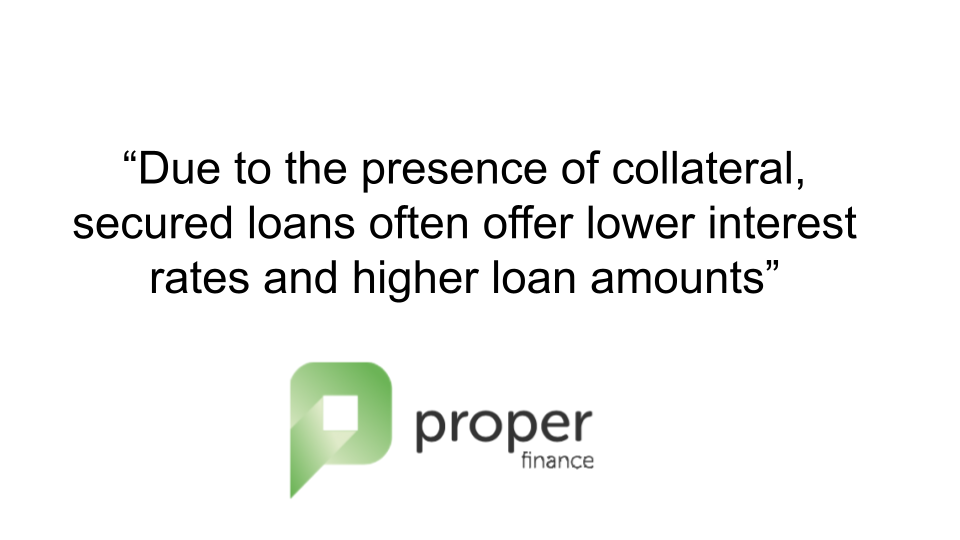
What is a Senior Stretch Loan?
A senior stretch loan can help you purchase a property …
There are two common types of loans: secured loans and unsecured loans. For individuals and businesses who are considering their loan options, understanding the differences between secured and unsecured loans is crucial for making informed financial decisions.
In this article, we will explain the differences between the two and discuss their various aspects.
Secured loans
Secured loans are backed by collateral, which serves as a form of security for the lender. Collateral can include assets such as real estate, vehicles or other valuable property.
Due to the presence of collateral, lenders have a lower level of risk, and therefore, they often offer lower interest rates and higher loan amounts. The collateral provides lenders with an assurance that they can recoup their investment if the borrower defaults on the loan.
Unsecured loans
Unlike secured loans, unsecured loans do not require collateral. Instead, these loans are approved based on the borrower’s creditworthiness, income and financial history.
Because lenders bear a higher risk with unsecured loans, they typically charge higher interest rates and provide smaller loan amounts compared to secured loans. Examples of unsecured loans include credit cards, payday loans and personal loans.

Secured and unsecured loans have a number of different uses:
The most significant distinction between secured and unsecured loans lies in the presence or absence of collateral. Secured loans require collateral, while unsecured loans do not.
Collateral provides lenders with a sense of security, allowing them to recover their investment by selling the collateral if the borrower defaults. In unsecured loans, lenders rely solely on the borrower’s ability to repay the loan based on their creditworthiness and financial situation.
Secured loans carry less risk for lenders due to the collateral involved. If the borrower defaults on their payments, the lender can seize and sell the collateral to recover the outstanding amount.
Unsecured loans, on the other hand, pose a higher risk for lenders since there is no collateral to fall back on. In the event of default, lenders must rely on legal action to recoup their losses.
Secured loans generally come with lower interest rates because the collateral provides a form of security for the lender. Secured loans also often offer higher loan amounts since lenders have more confidence in recovering their funds.
Unsecured loans, with no collateral to mitigate the risk, tend to have higher interest rates and smaller loan amounts.
Secured loans are typically easier to qualify for since the presence of collateral mitigates the risk for lenders. As long as the borrower has sufficient collateral and meets basic credit criteria, they are likely to be approved.
Unsecured loans can require a higher level of creditworthiness and financial stability. Lenders closely examine factors such as credit scores, income, employment history to determine eligibility.
The repayment terms for secured and unsecured loans can vary. Secured loans often have longer repayment periods due to the larger loan amounts involved. These loans can be spread out over several years, reducing the monthly payment amount and you may have the option to repay your secured loan early. Unsecured loans, typically for smaller amounts, usually have shorter repayment terms, ranging from a few months to a few years.
To decide if you need a secured or an unsecured loan, it is recommended to do extensive research as the two types of loan have distinct characteristics that make them suitable for different financial situations.
Secured loans are ideal for significant investments and long-term projects, offering lower interest rates and higher loan amounts. Unsecured loans, on the other hand, are more suitable for short-term needs and smaller purchases, albeit with higher interest rates and smaller loan amounts. By understanding the key differences between secured and unsecured loans, borrowers can make informed decisions and choose the type of loan that best suits their needs and financial capabilities.
When you are ready to get the financial help you need, speak to an experienced mortgage broker to get the best rates for loans in your area.

A senior stretch loan can help you purchase a property …

A mortgage offer officially lasts for 3-6 months depending on …

If you have purchased a car through a dealership using …